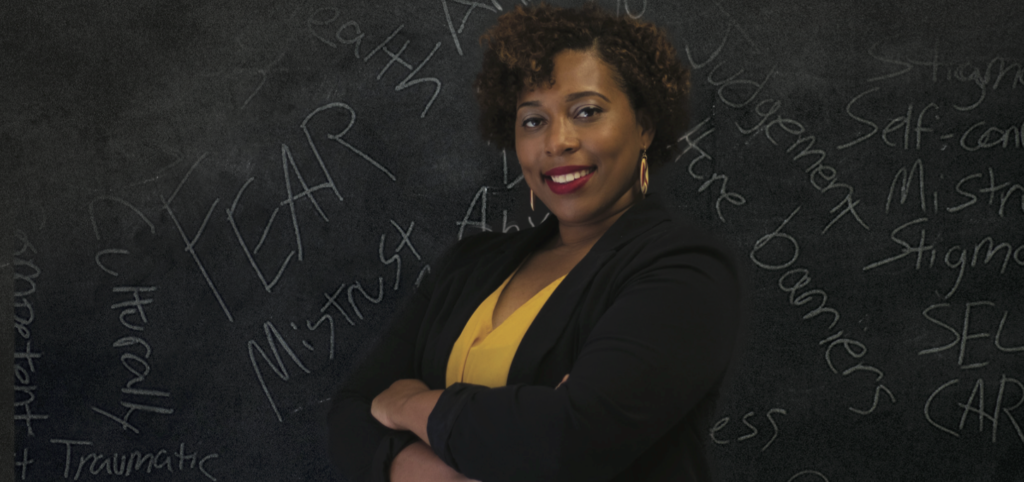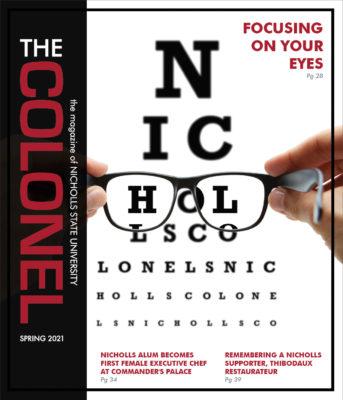You Are Not Alone
Maya Angelou said, “You may not control all the events that happen to you, but you can decide not to be reduced by them.”
Proper representation of who I am, in all my roles, is of vital importance to those roles. My education and experience of the various roles in my life as a Black Christian, daughter, sister, wife, mother, student, counselor, and outreach coordinator has altered my perspectives of Black mental health in the community.
As I have these interesting and sometimes difficult conversations regarding mental health with my children, I then realize how my environment and my core beliefs have affected me mentally and emotionally. Whereas I once looked at life’s negative situations as regrets, I now view them as life experiences. This mindset is helping me throughout this journey of breaking the cycle and barriers of stigma in the Black community. In this article, I share some of my own journeys through some of these roles, which has led me to my passion for mental health in our community and being an advocate for representation.
The truth behind the stigma is rooted deeper than most understand.
As a Black woman, I have experienced anxiety, high-functioning depression, suicidal ideation and other traumatic events. In those instances, I was not informed of or given the proper resources to learn positive coping methods, besides utilizing my faith.
In college, I was introduced to coping methods to help with my anxiety and depression. This is when I realized my mental well-being was actually affecting my physical well-being.
The “superwoman” mentality was often portrayed by Black women from my community as well as in the movies.
This was one of many learned behaviors passed down through the generations which can date back to slavery. Where many of our ancestors were forced to suppress their emotions and trauma, viewing it as a weakness. Instead of reinforcing a portrayal of strength, that trauma was then passed on from generation to generation. Educator and author Dr. Joy DeGruy defined this phenomenon as Post-Traumatic Slave Syndrome (PTSS). Dr. DeGruy writes that PTSS explains the consequences of multi-generational oppression from centuries of chattel slavery and institutionalized racism, and identifies the resulting adaptive survival behaviors.
We see the adaptive behaviors today when we try to have these conversations within our community. Have you heard these statements before? “Something must be wrong with you.” “You need to pray more.” “You’re strong, not weak.” “You can push through it.”
Of course, you have. These are the common stigmatizing phrases of why people do not attend counseling. In the Black community, these statements build up a stigma that surrounds mental health issues and therapy preventing Black people from taking the next step of seeing a therapist.
Our form of talk therapy usually consists of God, our barber, our nail tech, our hairdresser, our pastor or priest, our closest friends, or our family. Those people are our support system, but times have changed. The concern and awareness of mental health, especially practicing self-care, is being discussed in more public spaces, like social media.

Although these issues are being addressed, there have been past and current traumatic events occurring throughout the years that have created an overwhelming emotional burden for Black people. These events have sparked the conversation of mental health and self-care as evidenced by people using their platform to discuss their own mental health concerns and experiences. Also, many universities across the U.S. are providing more resources and training for their counselors, faculty, and staff to be more culturally competent and to focus on examining their approach to mental health and diversity.
As the counselor and outreach coordinator on this campus, I am able to not only engage with students, but also hear and empathize with them regarding their mental health issues. Our Black students have talked to me about their concerns. Many did not know there was a Black counselor, and wanted to see more representation of themselves, as well as more resources and programs. This led to my desire to challenge stigma and bring awareness of mental health for our Black students on campus.
I have since started the B.O.L.D Women’s counseling group, and held two Black mental health panels and discussions, and a variety of other therapeutic events for mental health.
At the Counseling Center, we understand the importance of finding a counselor who best meets student needs and the importance of representation. Therapy is best when you feel a sense of trust and connection with your therapist. This is why there is a need for culturally competent counselors. It is also important for us as a campus and a society to create a culture of well-being to promote and be effective in addressing mental health especially in the Black community.
Creating this culture of well-being will help to eliminate the cultural barriers, which discourage many Black people from talking openly about mental health. This is why we must continue to utilize our platforms to promote a non-biased and culturally competent safe space.
– Elnora Vicks (AS ’10, BA ’13, MEd ’17)



